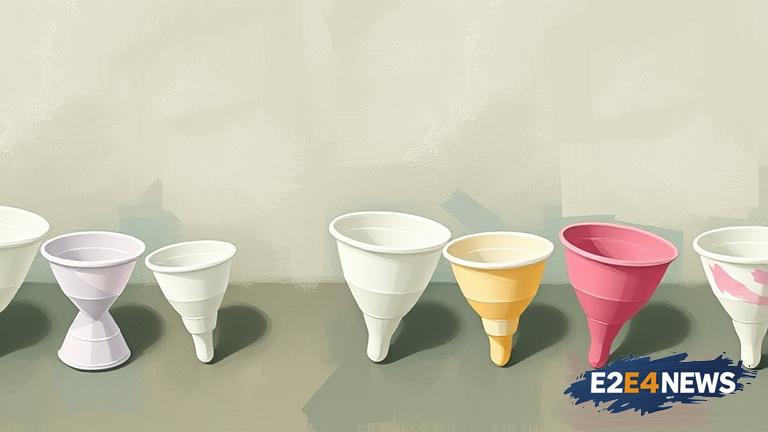Menstrual cups have been available for decades, offering a sustainable, cost-effective, and healthy alternative to traditional menstrual products. However, they remain underused, with many women unaware of their existence or hesitant to try them. One of the primary reasons for this underutilization is the lack of awareness and education about menstrual cups. Many women are not informed about the benefits of using menstrual cups, such as reduced waste, cost savings, and improved health outcomes. Additionally, misconceptions about menstrual cups, such as the belief that they are unhygienic or difficult to use, also contribute to their underuse. Furthermore, cultural and social barriers, such as the stigma surrounding menstruation, can also prevent women from adopting menstrual cups. In some countries, menstrual cups are not widely available, making it difficult for women to access them. The lack of regulation and standardization in the menstrual cup industry can also make it challenging for women to choose a high-quality product. Moreover, the absence of comprehensive sex education in schools can leave women without the knowledge and skills to manage their menstrual health effectively. The underuse of menstrual cups also has significant environmental implications, with millions of disposable menstrual products ending up in landfills and oceans each year. To address these issues, it is essential to increase awareness and education about menstrual cups, as well as to improve access to these products. This can be achieved through public health campaigns, educational programs, and partnerships with healthcare providers. Additionally, policymakers can play a crucial role in promoting the use of menstrual cups by implementing policies that support their adoption, such as tax incentives or subsidies. The benefits of menstrual cups are numerous, and their adoption can have a significant impact on women’s health, the environment, and the economy. By breaking down the barriers to adoption, we can increase the use of menstrual cups and promote a more sustainable and equitable menstrual health landscape. The underuse of menstrual cups is a complex issue that requires a multifaceted approach to address. It is essential to engage with diverse stakeholders, including women, healthcare providers, policymakers, and industry leaders, to promote the use of menstrual cups. By working together, we can increase awareness, improve access, and reduce the stigma surrounding menstruation. Ultimately, the adoption of menstrual cups can have a profound impact on women’s lives, empowering them to take control of their menstrual health and make informed choices about their bodies. The use of menstrual cups can also contribute to a more sustainable future, reducing waste and promoting environmental health. As the world continues to grapple with the challenges of climate change, menstrual cups offer a simple yet effective solution to reduce our environmental footprint. In conclusion, the underuse of menstrual cups is a significant public health issue that requires immediate attention. By increasing awareness, improving access, and reducing stigma, we can promote the adoption of menstrual cups and create a more equitable and sustainable menstrual health landscape.
Thu. Oct 23rd, 2025
